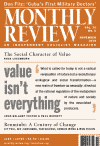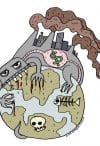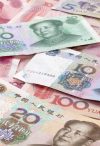Volume 70, Issue 06 (November 2018)

The twenty-first century has resulted in a vast upsurge of ecological Marxism and ecosocialism more generally, building on the environmental critique of capitalism embedded in classical historical materialism. At the same time, it has also engendered opposing tendencies and approaches concerning how we understand relentless ecological destruction under capitalism. This issue is dedicated to exploring the theoretical advances, schools of thought, and debates on the left in regard to our world’s ecological crisis, which threatens the survival of humanity and is inescapable within the present capitalist system of production. | more…

The rapid advances in Marxian ecology in the last two decades have given rise to extensive debates within the left, reflecting competing conceptions of theory and practice in an age of planetary ecological and social crisis. One key area of dispute is the attempt by a growing number of radical environmental thinkers to deconstruct the labor theory of value in order to bring everything in existence within a single commodity logic. For many in Green circles, Karl Marx and a long tradition of Marxian theorists are to be faulted for not directly incorporating the expenditure of physical work/energy by extra-human nature into the theory of value. In response, this article argues that any form of analysis that seeks to eliminate the deep-seated dialectical contradictions between the natural form and the value form, as well as between the capitalist economy and the larger socioecological metabolism, fails to comprehend the complex, interdependent dialectics of nature and humanity. | more…

In this excerpt from The Accumulation of Capital, Rosa Luxemburg explains how classical political economy lacks a clear conception of the commodity—both in the terms of the distinctions between use value and exchange value, as well as between concrete and abstract labor. This metaphysical, essentialist framework leads to a complete failure to understand the social character of labor’s capacity to create value. | more…

There is considerable interest in the history and characterization of China’s economy. This overview of the evolution of the renminbi from the late Qing dynasty to the present, shows how China’s political and economic changes in the twentieth and twenty-first centuries are reflected in the development of its highly contested modern currency system. | more…

In the 1960s and the context of mushrooming popular movements across the globe, the brutality of U.S. imperialism, the unreliability of the Soviet Union as an ally, and the Latin American Communist Parties’ focus on the urban working class, Cuban leaders felt beckoned to help revolutionary projects in Africa. While Cuba sent soldiers, they also sent doctors. By the end of the 1960s, when the Cuban revolutionary government had been in power for only ten years, doctors had been involved in four different African political projects. Cuba’s deployment of military doctors to Africa left profound impacts, both on the host countries and on the Cuban doctors, who were bound to secrecy and only began sharing their stories decades later. | more…




